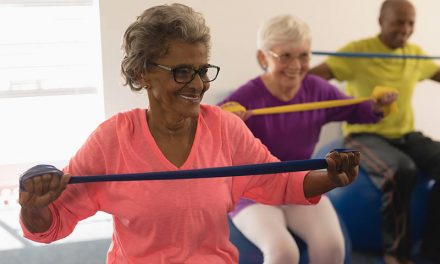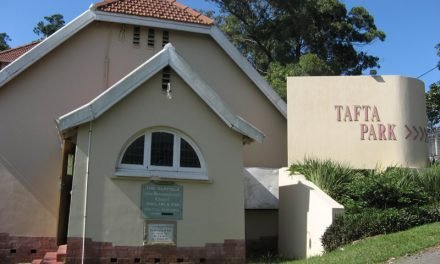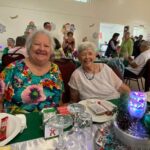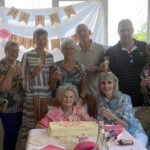Involved and in charge – how older people benefit from being able to make their own decisions
It’s no secret that elders were the worst affected by the Covid-19 pandemic and subsequent lockdowns. Apart from fear and anxiety at the thought of becoming seriously ill – they had to learn to live without any of the activities that bring them joy: visits from loved ones … family outings … connections with friends over tea and bingo … trips to the shops and the chance to pass the time of day with acquaintances they bumped into.
In house volunteers
During Lockdown, Tafta’s in-house volunteers really stepped up to fill the gap and help their fellow residents deal with loneliness, boredom and anxiety. Armed with technology tools for effective communication on Facebook and WhatsApp, they shared news and uplifting messages, and provided a channel of communication between staff, elders and families. Many also took on practical responsibilities to keep our Homes running smoothly despite skeleton staff.
Moving away from a culture of dependency
According to Barnes Cottage resident, Lance Marshall, older people have a tendency to shift the responsibility for their happiness and well-being onto others. What they should be doing is moving away from the culture of dependency and start doing things for themselves … creating the lives they want to live and adding purpose and meaning to their days.
For Lance and fellow resident, Jenny Davies, that means playing an active role in the running of their complex.
Working with Tafta management, the pair were able to suggest improvements to the complex security system which led to a cost saving in residents’ levies. Jenny has also been instrumental in creating a buddy system, where neighbours check up on each other. She loves the bonds of friendship that this has fostered.
Another active participant in the management of the complex, the elegant and soft spoken Barbara Johnston (91) acts as the social secretary. “I love bringing people together,” she says. “People here are incredibly kind and look after each other so well.”
Social interaction has become critical
This kind of social interaction has become critical in our Covid-19 world, as elders are forced into isolation, denied pleasurable outings and activities, and forbidden visits from family and friends. Depression, loneliness and boredom are the inevitable result of this new ‘normal’.
To combat the negative effects, Tafta actively recruited and encouraged the formation of teams of in-house volunteers – known as communication champions – who are willing and able to serve their peers by sharing news, spreading uplifting messages and taking on practical responsibilities to ensure the smooth running of our homes during staff shortages.
Actively engaged and positive
Although the communication champion network was implemented primarily as a way to address fears and spread factual information about Covid-19, while encouraging elders to remain actively engaged and positive in the face of confining restrictions, we noticed a spin off benefit to the volunteers.
Basil Usher is a people’s person, who enjoys being around people, listening to them and doing whatever is needed to help them. He took to his new role like a duck to water, and is never happier than when he is standing at the front entrance, bottle of sanitiser at the ready, making sure that anyone who enters is safe.
“I also help with the groceries and take delivery of people’s medication,” he says “I take these up to the people’s rooms, and pass on messages from their families, who are not allowed onto the premises during lockdown.”
“You could send him for anything,” said Nomphilo Makhize, one of our caregivers. “And he wouldn’t complain. He is a true champion.”
Meeting people
Another resident who helped out was Lynette Matthews, who took over the reins at reception for a couple of months. “I was very happy,” she said, “because I could meet a lot of people. We were on Facebook and WhatsApp, encouraging all the other Tafta Homes to join in and work through the frustrations together.
“Depression hit this building very badly and we were all affected by the lockdown restrictions. I was glad that I could pray for some of the people and encourage them to be uplifted by something.”
Relief Building Supervisor
At Tafta Lodge, 64 year old Amy Green serves as a relief Building Supervisor. For many, she is the first point of call – helping other elders sort out problems with their televisions or cell phones. Amy also checks up on those who are not well and, if they are in isolation, checks their temperature and oxygen levels.
Dependable, helpful and always willing to go the extra mile, Amy does all of this during her free time, without expecting anything in return. No wonder she is a much loved and greatly appreciated member of the Tafta Lodge ‘family’.
At our service centres too, we have dynamic teams of volunteer elders who prepare meals, snacks and cakes for sale, to generate income to help others in need. At the Anna Conradie Centre, they’re using the funds raised to create gift packs for the homeless.
“We believe that giving back is also a way of showing gratitude for the years of receiving,” explains centre co-ordinator, Jacky Russell.
Engaged communities of decision makers
At the age of 84, our charming and distinguished ‘Jimmy’ Wykes diligently arrives at the Mary Asher Centre every morning at 7.30 sharp to man the registration desk. His warm, friendly smile makes everyone feel welcome and he helps keep everyone safe by sanitising their hands and the food trolley.
Tafta CEO Femada Shamam wholeheartedly cheers on these special champions. “We’re an organisation that supports the active engagement of our elders in decisions about their homes and their lives. We are always ready to listen and make changes that benefit our residents. I love that these elders have transformed their homes into engaged communities of decision makers who approach us with viable proposals aimed at bringing positive changes to their lives.”






 Christmas joy – thanks to you!
Christmas joy – thanks to you! Robin Hood Foundation spreads love across Tafta Homes
Robin Hood Foundation spreads love across Tafta Homes 12 Days of Giving – spread joy to older people this Christmas
12 Days of Giving – spread joy to older people this Christmas Tafta resident pens powerful tribute to heritage and hope in new book
Tafta resident pens powerful tribute to heritage and hope in new book Introducing TEAL – our upgraded national Elder Abuse Helpline
Introducing TEAL – our upgraded national Elder Abuse Helpline Beat the year-end blues – 6 tips for staying positive during ‘silly season’
Beat the year-end blues – 6 tips for staying positive during ‘silly season’ Wisdom on ageing – the most exquisite chapter
Wisdom on ageing – the most exquisite chapter Thriving through 2025 – a toast to life
Thriving through 2025 – a toast to life ‘Human Forever’ inspires Durban audience
‘Human Forever’ inspires Durban audience Celebrating 100 years of life with Mrs Rosemary De Waal
Celebrating 100 years of life with Mrs Rosemary De Waal